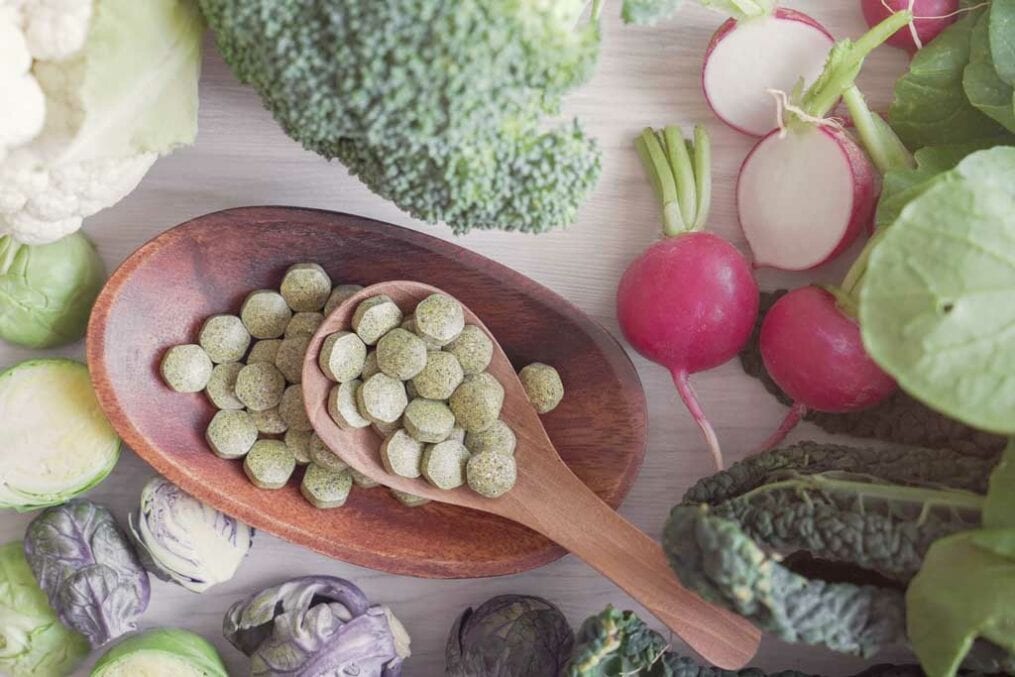6 ways to stress less about IBS
 Many IBS sufferers link their condition to stress and anxiety, not only as the potential cause of their condition in the first place, but also one of the main symptom triggers. So to mark IBS Awareness Month, we spoke to Nutritional Therapist Claire Barnes of Lepicol about how to stress less when it comes to IBS.
Many IBS sufferers link their condition to stress and anxiety, not only as the potential cause of their condition in the first place, but also one of the main symptom triggers. So to mark IBS Awareness Month, we spoke to Nutritional Therapist Claire Barnes of Lepicol about how to stress less when it comes to IBS.
First, it’s important to understand the connection:
‘More emphasis concerning the gut-brain axis is now evident. Experts understand that messages are sent via nerves, hormones and immune cells between the gut and the brain. In fact, studies suggest that 80 per cent of the communication in the vagus nerve (the main nerve connecting the gut and the brain) flows from the gut to the brain, and only 20 per cent from the brain to the gut.
‘Evidence now suggests that IBS may have developed from disruption of the gut microbiota, suggesting that the condition may actually begin in the gut before influencing our brain health.’
Read more: 7 new things you need to know about IBS
Here are Claire’s six tips to help you on the road to improving your gut health (and consequently the health of your brain), enabling you to stress less about your IBS:
1 Make some dietary changes
Cut out potential allergens and intolerances to help reduce the level of inflammation within the gut. Eliminate refined processed foods, choose good quality proteins and reduce sugar intake, whilst increasing antioxidants by eating plenty and varied vegetables.
Be gentle on your sensitive digestive system by eating blended soups and slow-cooked stews. As the weather warms up, smoothies are also a great choice – add avocado, kale, spices and nut butters alongside your favourite fruits.
Cook meals from scratch to initiate your body’s natural hunger hormones and digestive enzymes to prepare your gut and brain for the meal ahead.
Read more: This diet could be the end of your IBS symptoms
2 Try live bacteria
Clinical studies have shown that many who suffer with IBS appear to have a dysbiosis (imbalanced gut flora). This disruption could have occurred due to a number of reasons, such as antibiotic use, medications such as antacids and laxatives, travel, stress and poor diet.
In the largest trial of its kind on the use of live bacteria supplements in irritable bowel syndrome, 400 adult patients with diarrhoea-type IBS were treated with either a multi-strain live bacteria supplement or placebo for 16 weeks. It was found that the live bacteria supplement significantly reduced bowel movements compared to the placebo, and also improved the severity of abdominal pain.
3 Eat mindfully
Ideally we should take time to sit down and relax before eating our food. Turn off all distractions and concentrate on the food you are eating. Keep in mind that digestion starts in the mouth, so ensure that you chewing each mouthful optimally to break down the food and increase digestive enzymes.
Certain foods such as ginger, pineapple and papaya contain their own digestive enzymes, helping you to break down protein and stimulate stomach acid which could reduce your IBS symptoms.
Read more: 15 expert ways to beat IBS
4 Focus on fibre
Fibre can be split into two categories; soluble and insoluble, each having their own benefits for our health.
Insoluble fibre is present in grains and when bound with water increases stool bulk and improves bowel motility. This is why a low fibre intake often results in constipation.
Soluble fibres, known as prebiotics, are present in vegetables, fruits, nuts and oats, and provide a fuel source for our gut bacteria.
Keep in mind that fibre requires water to be effective, so alongside increasing your fibre intake ensure you are consuming at least two litres of water each day.
Adding a natural high-fibre supplement to your diet, such as Lepicol Plus+ or Regucol, could be a useful natural alternative to help improve the health of the gut and potentially relieve some of the symptoms of IBS. Both contain psyllium husk (gentle fibre), inulin (a prebiotic), and bacterial cultures.
Read more: Fibre-rich banoffee French toast
5 Stick to a routine
Try to keep your circadian rhythm in check, as this allows your body to naturally produce the right hormones and neurotransmitters when they’re required.
Unfortunately, this is not always achievable, especially for shift workers, but it is important to set some routine based around your circumstances.
Aim to get to bed and wake up at the same time each day, eat your main meals at similar times each day, don’t exercise in the couple of hours before you go to bed, and make some time in the evenings for relaxing and stretching the muscles.
Your body should naturally begin to respond to these regular patterns, potentially enabling you to digest your food better, improve your energy levels throughout the day and achieve a better sleep, which can have an impact on irritable bowel syndrome.
6 Make time for relaxation
Stress and IBS often go hand in hand, with many sufferers noticing an exacerbation of symptoms in times of stress, whilst the symptoms of IBS can themselves further trigger anxiety and stress.
When you are particularly feeling stressed or anxious, you may find taking some time out for a mindfulness session could help you to relax and reduce those negative feelings.
Read more: Why healing your gut could make you happier
If you’re restricted on time, simply breathing deeply for 10 breaths could help to relax your mind and body. Aim to make time in your day for yoga or Pilates to help align the body with the mind.
Remember throughout your day, you have an internal and external world, take time out to look after your internal body and mind when the pressures of the external world start to take their toll.
With thanks to Claire Barnes and Lepicol.











